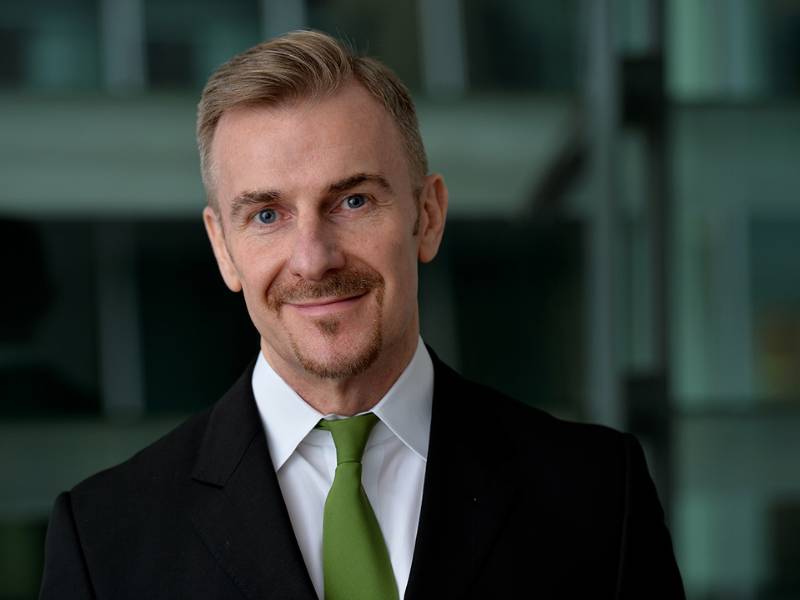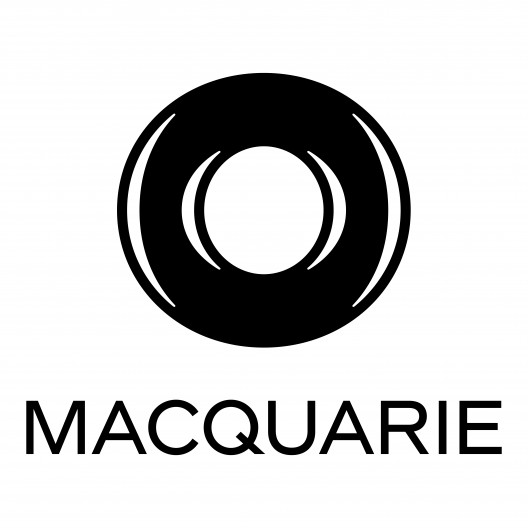
“People Were Waving Placards Telling Us We’re Going to Hell”; Geff Parsons on Why Sports Must be Inclusive for all LGBTQ+ People
An Interview with Geff Parsons, Managing Director at Macquarie by Zoe Schulz, myGwork
It’s been almost 40 years since former tennis World Champion player Billie Jean King was publicly outed, a moment that heartbreakingly tarnished the rest of her career. Today, a handful of openly LGBTQ+ tennis stars have found success, yet they are still far and few between. I sat down to speak to Geff Parsons from Macquarie to talk about the racket sport that has had his heart since he was a kid and discuss why it still lacks visible queer role models. Sport has the power to bring us together and connect people from around the world, but it has to include everyone, or it ends up creating a toxic environment where players can’t safely be themselves. As Geff shared with me, there are still pockets of inclusivity across games and hope for a more inclusive playing field for the next generation of athletes.
Tennis has allowed Geff to travel the world, from Madrid to Toronto, through participating in international tournaments sanctioned by the Gay & Lesbian Tennis Alliance (GLTA), which he considers a safe space, and where he spends quality time with his husband and meets new friends. When looking across the professional courts it baffles him that there are still so few openly LGBTQ+ players in the sport that he has found a haven. Off the courts, Geff is the Managing Director at Macquarie where he is a part of the Commodity and Global Markets team and supports Risk Management on a project basis. He has been there for 8 years and has co-chaired their Pride Employee Network Group for the majority of this. In addition, Geff is an advocate for LGBTQ+ rights, a public speaker, and sits on the board of trustees for both GiveOut and Diversity Role Models. Whilst the tennis court is a place where he can enjoy himself, he also brings his dedication to LGBTQ+ equality to the game and wants to push for the sport to be inclusive for everyone.
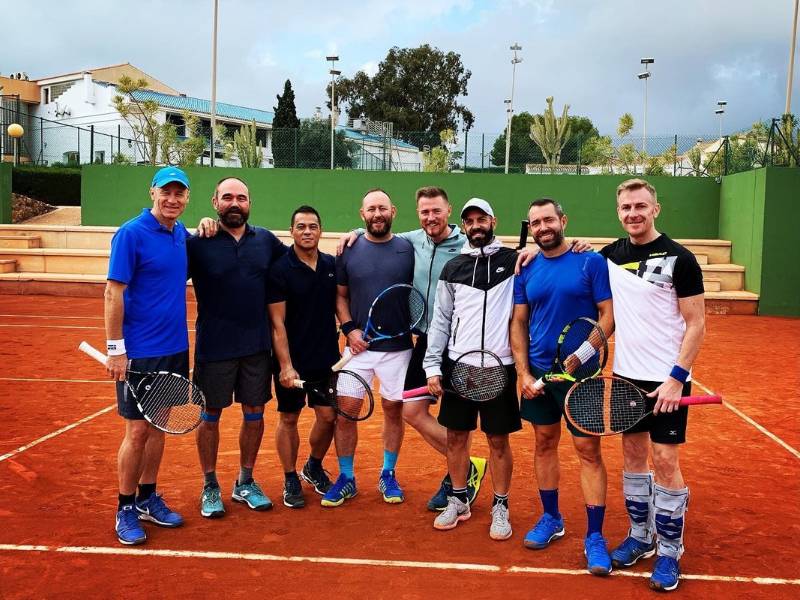
La Manga
Looking back, Geff admits he has not always been a fan of sports, explaining how at school he was very academic but struggled when it came to the physical side. Despite this, racket sports pulled him in as he found himself winning a school table tennis championship then dabbling in squash, but it was tennis that he fell in love with. Today, he’s retired from the game due to chronic knee and back ailments, yet somehow always finds a way back onto the court. He’s competed in over 100 GLTA tournaments, 99% of the time playing doubles with his husband, Kevin, they also regularly competed in the Gay Games. They don’t let themselves get too competitive and feel lucky to be able to travel while they play, joking that “even if you lose, you’re still in, say, Madrid – it can’t be that bad!”
After university, tennis fell off the radar for Geff, as at this point he was busy building his career to become a qualified chartered accountant before moving to Hong Kong. It wasn’t until he started dating Kevin in Hong Kong that he picked it back up, where they both re-learnt the sport together. Geff shares how important tennis still is for them, not only from having this time to connect but also that many of their closest friendships have bloomed from this. When arriving back to the UK, they both joined Tennis London, an LGBTQ+ network for players, where they were able to compete and travel the world. Their love for the sport had only continued to grow from there.
Tennis London comes under the umbrella of the GLTA, which is a global sports organisation that oversees over close to 100 competitive tournaments across the world each year. Comprising of a large community of over 10,000 players (approximately 11,500 players have a GLTA ranking), is the organisation also provides an environment where players can thrive while also being their authentic selves. Geff recognises the importance of this, commenting “it’s a safe space, which is nice, although we’re all longing for the day where we don’t need that.”
The tournaments aren’t immune from the discrimination that exists outside of them. Geff recalls a situation back in 2006 at his first Gay Games, which took place in Chicago. On the way to the venue, he comments they were confronted by “people waving placards telling us we’re going to hell – and we’re not talking about the odd person but organised protests.” A moment of such intensity could easily put you off playing as an openly LGBTQ+ person, and although Geff hasn’t been halted he admits it’s strikingly obvious that we have work to do to make sport safe for everyone. “We had safety in numbers as we were surrounded by about 15,000 LGBTQ+ people, so it felt okay, I wasn’t an individual exposed at that point but there is still a huge amount of antipathy that we need to face and until that goes away, we still need safe spaces which is what this provides.”
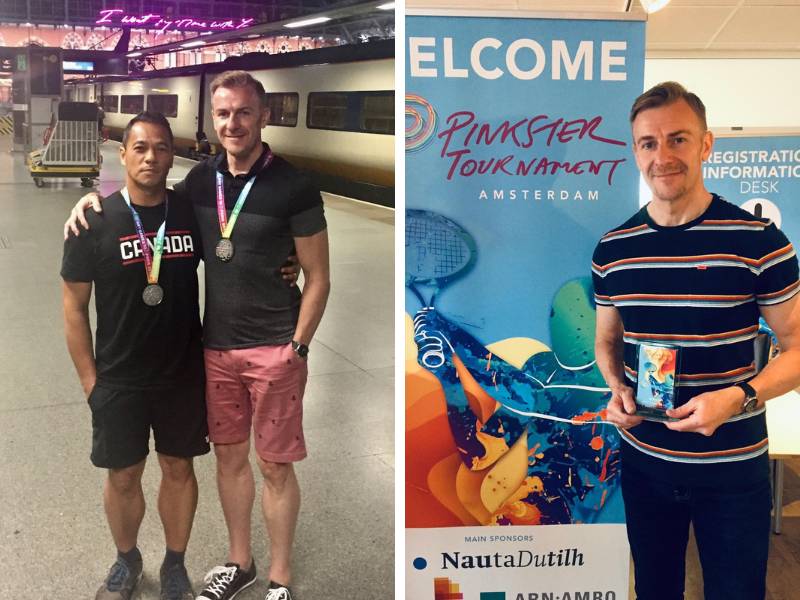
Gay Games, 2018 & Amsterdam, 2019
Geff believes much of this stems from the fact that there are still so few visible openly LGBTQ+ role models within the sport. Although we now have a few professional LGBTQ+ female players, there is not even one male professional player current competing. Statistically, he observes this just cannot be accurate. It is not just tennis where this is the case, but across the sporting industry and especially in football. He explains “unfortunately, it’s exactly the same in football. I always have a memory of Justin Fashanu, 23 years ago, who took his own life at the age of 37 in 1998 because of all of the hatred that he had to deal with, being the one professional footballer to come out as openly gay. Despite being an amazing young player, it did not help that he was black, so he was receiving racial abuse as well. Since then, go figure, there hasn’t been a single openly LGBTQ+ professional male footballer. It makes absolutely no sense, and it’s the same in tennis.”
Geff remains hopeful that the day will come where this will change and knows how much it will mean to young people that look up to sports players as role models. He also reflects on the impact that this would have had on him, sharing “it would have helped me a huge amount. It wouldn’t have made me anymore more or less likely to play tennis because I was always a tennis fanatic anyway, but it may have made me more accepting of who I was when I was younger from a personal perspective. Realising that I could have recognised myself as being gay earlier than I finally did just because it would have been easier to resonate with something that I could relate to.”
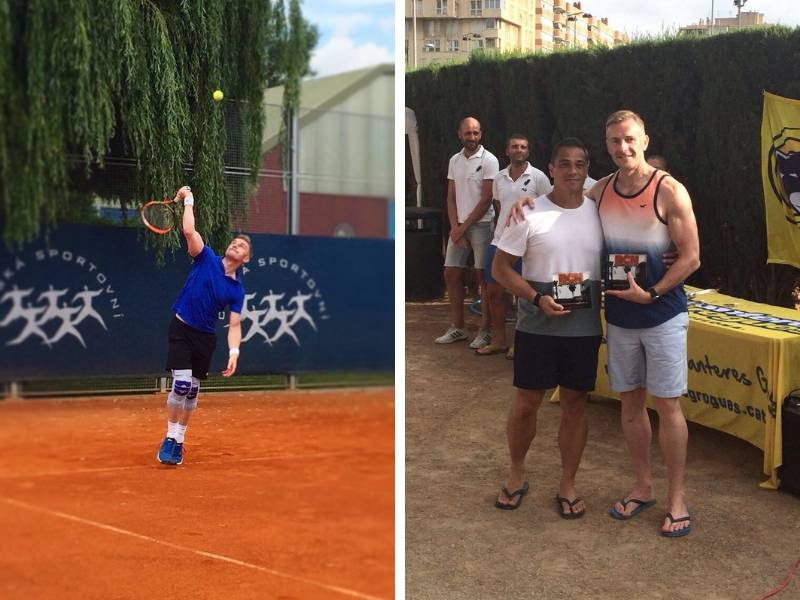
Prague & Barcelona Doubles Champion
It is not a coincidence that Geff passionately speaks up for equality in both the workplace and sports, as to him they are two parts of the same situation. This is why he is advocating for the same tactics we use to create workplace equality to be applied in the tennis courts too. “When professional sports players are able to be openly gay, they are bringing their whole selves to work – because the sports arena is their workplace. It’s really no different because you still need your role models and you still want to be able to bring your authentic self to work. If your work happens to be a football pitch, a tennis court or an ice rink, whatever it is, then you should at least be able to be true to yourself and not have to hide anything.”
Due to the pandemic, there have been very little sports able to take place over the past year. Despite this, Geff is hopeful that when we’re allowed back on the court, the push for sports to be a place of inclusion and acceptance will continue. This won’t happen without work, however, and the LGBTQ+ community and our allies need to stay strong in pushing for a game where all players can thrive. He reflects on this, admitting “I’m very proud of the LGBTQ+ community and how most of us have carried on doing what we can to keep promoting and pushing for greater awareness, education and inclusion, even during the pandemic. I am obviously looking forward to the day that we can all physically meet again because there is a huge amount of value in the camaraderie and the networking that comes with tennis. I'm hoping we can get back to some semblance of normality and get out and play some sport again soon.”
